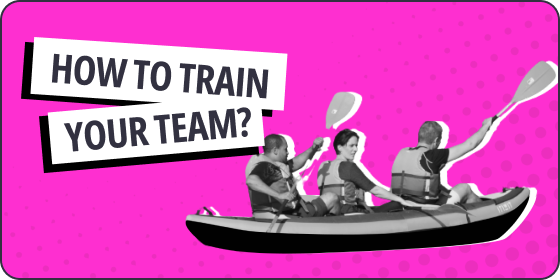How to tap into your Teams ‘Why’?

There’s a phenomenal book written by Simon Sinek, where he talks about understanding your Teams why as a starting point. Until you understand their why, you cannot effectively lead them. There are 2 types of motivations. ‘Internal motivation’, and ‘external motivation’. As a leader, you will always be an ‘external motivation’ for the person you are leading. External motivators include money, rewards, trophies, and praise. Leaders are famous for putting all kinds of incentives like these in place to drive performance, when most people are wired differently, and ‘internal motivating’ factors are much more meaningful and effective motivators. Internal motivators include someone’s values, interests and innate needs as a human. People are often motivated by things that interest them and give them a sense of purpose.
As a leader, it’s your job to help people do work that inspires them. People will not buy into you because you are more experienced, or have been in the business longer, or even if you have demonstrated success in the business. People don’t buy what you do, they buy why you do it. If you clearly explain why you do things, they will have a better understanding and appreciation of you. The same goes both ways. If you clearly explain why you are asking them to perform a task, and explain how it benefits them, they will get it done.
It’s important to sit down with the people you are leading within the first few weeks of your relationship, and ask them why they are here? What makes them keep showing up every day? They are not here for you or for the business, they are here for themselves. You need to find out why. What makes them tick? Each person is different, but most people will always have motivators inside of these key topics:

What are their personal goals?
What do they personally want to achieve? Where do they want to be in 5 years? Do they plan to continue their education? What is their dream job? Where would they like to travel to? What is their dream work life balance?
What are their financial goals?
Do they own a home or rent? What is their timeline to own a home? Do they own their car? In what timeframe would they like their car to be paid off? At what age do they want to retire? Do they have debt? How important is money right now? Do they make investments? Do they have savings? At what age do they want to be financially independent? If they received several big pay checks in a row what would they do with that money? Does money motivate them?
What are their health goals?
Do they have any key health goals right now? Are they trying to bulk up? Are they trying to lose weight? How important is their overall health to them? When was their last full health checkup? How is their mental health? Have they ever considered seeking the advice of a mental health professional? Do they go to the gym? If so, how often? Are they training for anything like a 5K or 10K?
What are their personal development goals?
How interested are they in personal development? Are they doing any personal development at the moment? Do they like to read outside of work? If so, what do they like to read? Do you have any personal development goals? Are they interested in learning a new language or skill? Do they plan to continue their education? (Diploma, Degree or PHD).
What are their relationship goals?
Do they have a romantic Partner? How close are they to their family? Do they have close friends that live nearby? Do they see them often? How can they improve some of their existing relationships? What kind of leader would they like you to be? How hard do they want you to push them? When they are off track, how do they want you to have that conversation? Ask them to describe a great leader they had, and why they had a positive impact on them?
What is their career/professional goals?
What is their dream job? Where do they want to be in 3 years? What timeline would they want to get promoted in? Are they interested in leadership? Are they interested in owning their own business? How long do they see themselves in this role? How can you help them get to the next level?
Understanding this person’s goals will provide insight as to what motivates them. It will help you set the right expectations and hold them more accountable to their actions and their performance. Knowing their goals and motivations will also help you identify how and where you can support them. Ultimately, it will help you communicate more effectively and tailor your message to align with their goals.



























